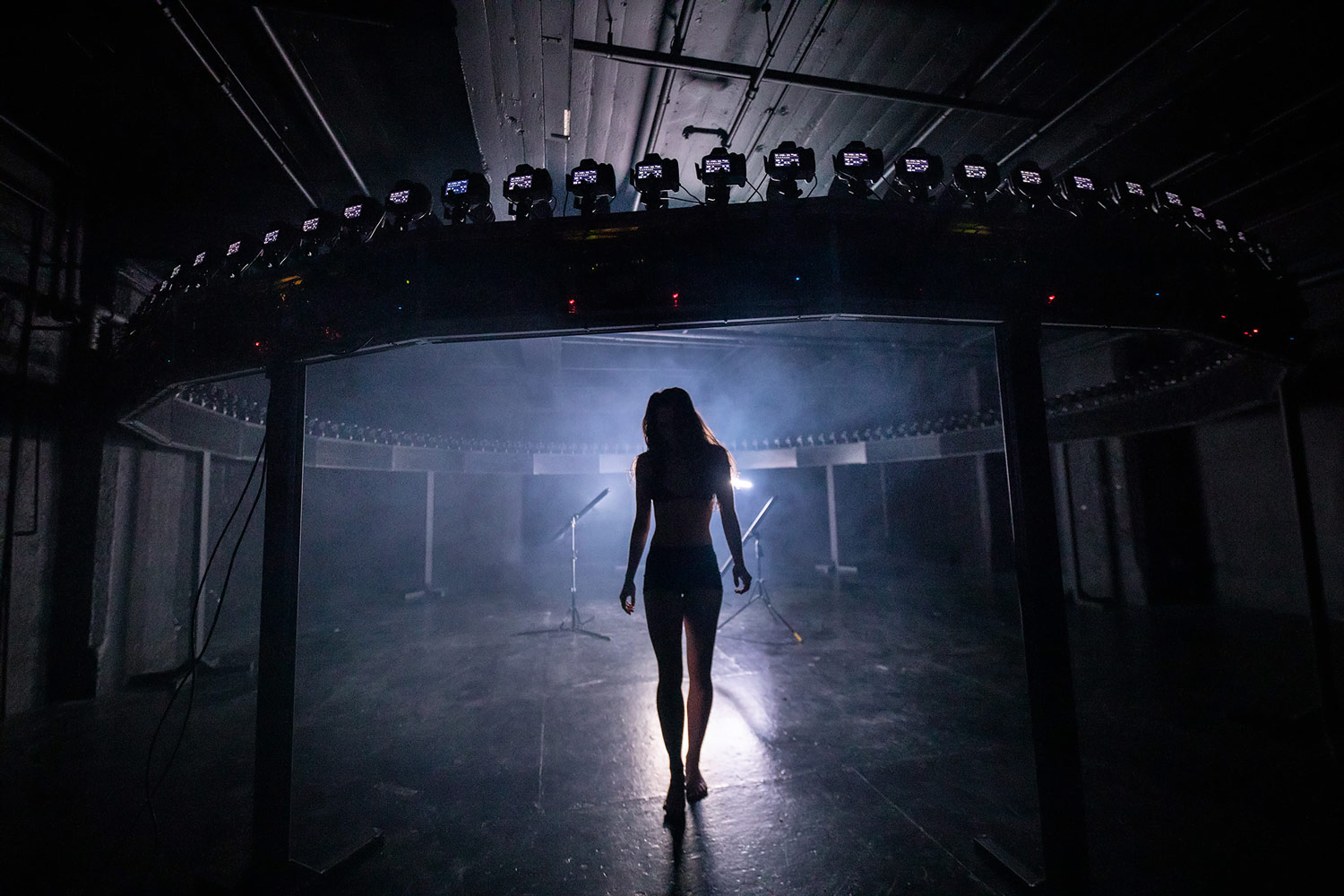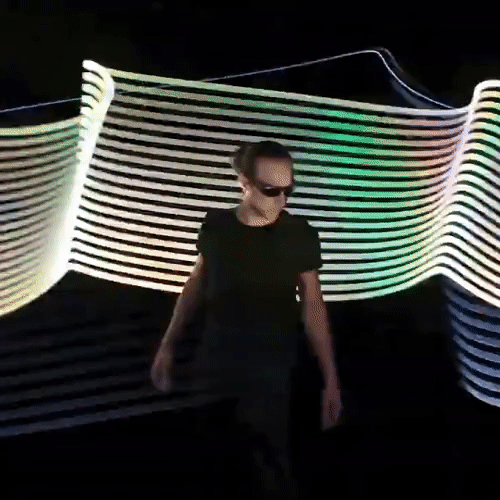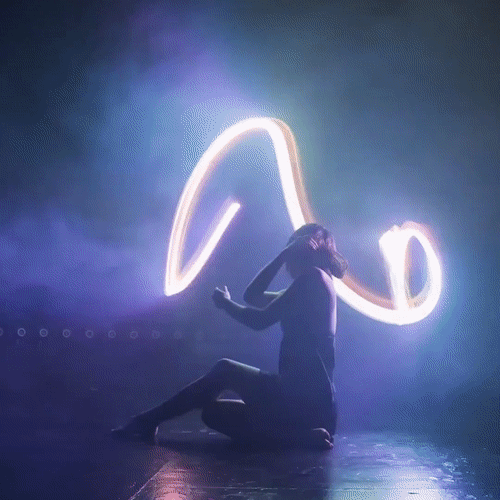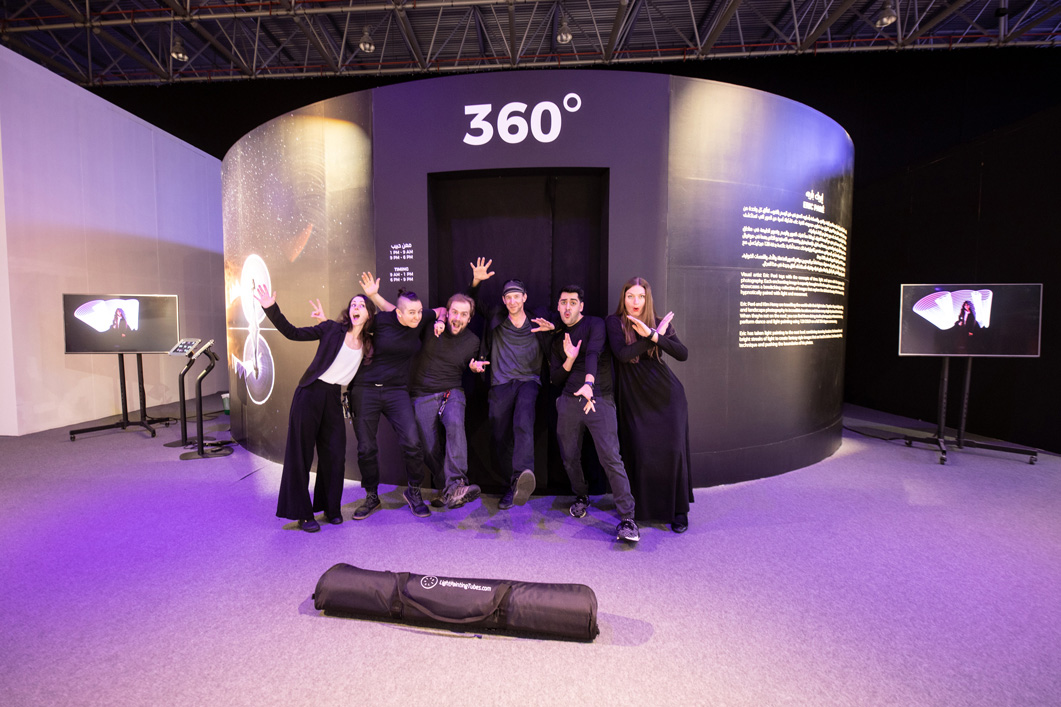In this “ESPER Customer Story”, we catch up with Eric Paré, visual artists, founder of Xangle and longtime ESPER collaborator to find out how ESPER powers and triggers have helped him create his light painting bullet time masterpieces.

Here is his interview:
Many ESPER customers will already know you, but for those new to the world of bullet time and light painting tell us a bit about yourself
I’m a visual artist from Montréal who loves combining a passion for photography, travel and light-painting. I’m also the head of Xangle – a complete multi-camera system software.
For the past 7 years, I’ve been creating tens of thousands of images involving light-painting and/or bullet-time. Everything I create is lit by hand with minimal editing.
We’ve been featured on CNN, MTV, BBC, Vice, TEDx, Peta Pixel, CNET and worked on huge campaigns for Audi, Twitter, Adobe, HP, Intel, Facebook, Canon and Microsoft.
What is bullet time light painting?
There would be many ways to describe this, but the way I’ve been doing it forever is this: I wave a light around a subject to light it up and create shapes of light around that person.
Technically, this simply involves doing a long exposure with the cameras. Some people go with a fixed duration (typically 8 seconds), but I prefer to go in Bulb mode on the cameras to be able to decide the exact duration of the shots based on the shape that I’m doing.
To create light-painting bullet time shots I have endless DIY things that I have been experimenting with including a long acrylic rod, a Rainbow Panel, and even a purse. But these days, I’m using only my Light-Painting Tubes and LiteBlades from Patrick Rochon.


Click here to see ESPER TriggerBox and PowerBox customer gallery.
How did you begin your journey with this technique?
After a long outdoors 360 degree tour in 2012, I had a few months off and I wanted to see what I could come up in 360 with light-painting. I had only a tiny black studio back then, but I managed to create my most complex creation ever, the LightSpin project.
For this one, I had access to only 24 cameras, but I was combining this with stop-motion, thus triggering all cameras at the same time for hundreds of shots. That resulted in half a million images for a short dance documentary.
What advice would you give to those interested in trying out bullet time light painting?
I teach a lot of what I do on my Youtube channel, and this is a good starting point. But the truth is that practice is the key to get great results. I spent 3 months in my studio every day before I published my first light-painting picture.
There’s a lot of things to figure out when working in 360 with light-painting, but it is so rewarding when you come up with something unique. It is still the beginning and there are a lot of things to discover and play with.
What’s the process like when shooting with so many cameras at the same time?
Camera trigger is sent via Xangle Camera Server on which I can pair a wireless Bluetooth presenter. The one that I’m using fits on my finger like a ring which makes it very convenient when my hands are busy manipulating the light-painting tools. Then to make it work, I press once to start the exposure, and then again to stop it.
In my case, I really want a super fast preview.
I’m currently down to 3 seconds on a 16 cameras array which is starting to make sense when you consider that we have to download the files, digitally calibrate them and generate an MP4 out of the JPG files. But I want an instant preview! That’s going to come one day 😉
For the rest, it’s pretty straightforward: we connect the cameras, calibrate and we’re ready to roll!
You’ve been using ESPER kit for a while now, what is it about ESPER Triggers and Powers that you love?
When we released our updated “Windows” version in early 2019 (that is when we added the possibility to use more than 12 cameras without the need of Raspberry Pis), we did a light-painting event with Canon at CES 2019 and we decided to go all in with ESPER TriggerBoxes and PowerBoxes!
We did a light-painting event with Canon at CES 2019 and we decided to go all in with ESPER TriggerBoxes and PowerBoxes!
We have used 4 ESPER TriggerBox units for 24 cameras. The camera power was also managed by ESPER on this one.
There are two key elements with ESPER PowerBoxes which make them a great addition to our setup.
One is the fact that it allows us to power up 6 cameras at the same time. This is a major upgrade to our previous solution which was made of Canon power supplies (way too many cables).
The second element is the coupler itself. ESPER is making the best non-Canon coupler we’ve ever tested. And we tested a lot! Original ones from Canon are expensive and mostly, very hard to find. ESPER has been a key element in the booming of the bullet-time industry by making and providing DC couplers.
We own probably 200 [ESPER] units at this point and we keep buying more and sending our clients your way to purchase more!
We own probably 200 units at this point and we keep buying more and sending our clients your way to purchase more!
ESPER have been powering up our bullet-time rigs for a long time now. We travel with ESPER on massive productions around the world to power from 12 to 200 cameras and we can’t really imagine how we could survive without the PowerBox products!
ESPER have been powering up our bullet-time rigs for a long time now. We travel with ESPER on massive productions around the world to power from 12 to 200 cameras and we can’t really imagine how we could survive without the PowerBox products!
How has bullet time light painting changed the way you work?
My life prior to light-painting was limited to local festivals around Montréal.
When I started to do personal bullet-time light-painting project, I got noticed super quickly by agencies and started to work on much bigger scale projects. We’ve managed to create our art at Coachella, SXSW, Xposure festival and at the CES.
This also opened the door to so many other opportunities simply based on the fact that we have a solid portfolio.

Learn more about ESPER TriggerBox and PowerBox
More interviews: